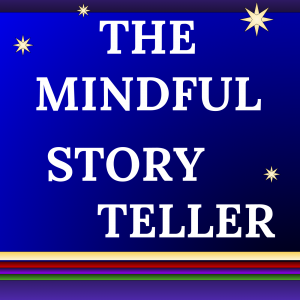
“It is not necessary to make an effort to think in a particular way…We just think with our whole mind, and see things as they are without any effort. Just to see, and to be ready to see things with our whole mind…This is called mindfulness.” – Shunryu Suzuki, Zen Mind, Beginner’s Mind, p. 115.
∞∞∞∞∞∞∞∞
The work of the storyteller is “just to see…without any effort.” There is some strange reciprocity that exists between your mind’s eye and the mind’s eye of another. If we allow our minds to truly envision the scenes as we share a story than our listeners are quite likely to see, as well. Conversely, if our telling of a story is “just words” unaccompanied by imaginative vision, then our listeners will only receive words, not images; there is likely to be little or no vision manifesting in those who might attempt to listen to such words.
Suzuki tells us that mindfulness is effortless seeing that is accomplished with “our whole mind.” This may seem contradictory: effort is not required, but “the whole mind” is called into play. What does this mean? Seeing with our mind’s eye (or, for that matter, with our physical eye) is effortless work. We read a compelling novel and the images just pop up; the scenes play out through our mind’s eye. There is no effort.
Mindfulness also calls for wholeness, for a synchronization of body and mind. As a mindful storyteller shares their tale, they invite themselves into an immersion. They bring to bear the body, mind, and spirit as one – as a single unified whole. When this unification is successful within the teller, something more may happen. The listener’s body, mind, and spirit may then be “pulled into” the story, as well – thus creating an atmosphere of “shared experience” that softens the hard edges of separateness that keep us distinct from each other.
This immersion is deep, but there are layers here. If body, mind, and spirit are at one within the story, can we simultaneously be mindfully present within the room, within the physical space where the story is being told? Can we be both in the story and mindfully present in the room?
∞∞∞∞∞∞∞∞
What does the term “mindfulness” mean to you? What does it mean to you to be mindfully present to story – as a listener or as a teller? Have you had experiences of “mindful presence” as a storyteller or story listener? Have you encountered times of “shared experience” where the tale is vividly present to both teller and listeners? How does this complement – or contradict – the greater, general ideal of being mindful and present?
(Music: Courtesy of Adrian von Ziegler, “Sacred Earth.” )